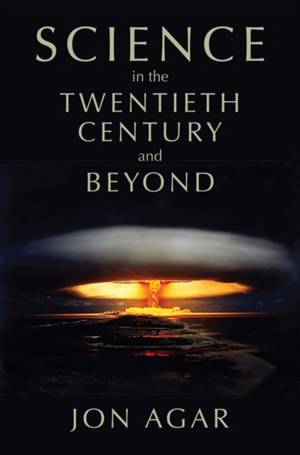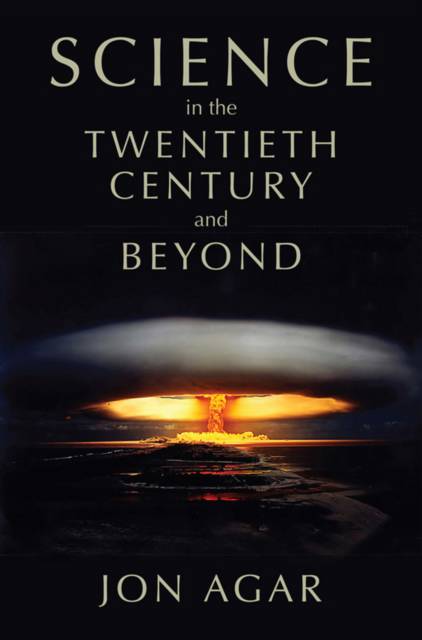
Je cadeautjes zeker op tijd in huis hebben voor de feestdagen? Kom langs in onze winkels en vind het perfecte geschenk!
- Afhalen na 1 uur in een winkel met voorraad
- Gratis thuislevering in België vanaf € 30
- Ruim aanbod met 7 miljoen producten
Je cadeautjes zeker op tijd in huis hebben voor de feestdagen? Kom langs in onze winkels en vind het perfecte geschenk!
- Afhalen na 1 uur in een winkel met voorraad
- Gratis thuislevering in België vanaf € 30
- Ruim aanbod met 7 miljoen producten
Zoeken
€ 31,95
+ 63 punten
Omschrijving
A compelling history of science from 1900 to the present day, this is the first book to survey modern developments in science during a century of unprecedented change, conflict and uncertainty. The scope is global.
Science's claim to access universal truths about the natural world made it an irresistible resource for industrial empires, ideological programs, and environmental campaigners during this period. Science has been at the heart of twentieth century history - from Einstein's new physics to the Manhattan Project, from eugenics to the Human Genome Project, or from the wonders of penicillin to the promises of biotechnology. For some science would only thrive if autonomous and kept separate from the political world, while for others science was the best guide to a planned and better future. Science was both a routine, if essential, part of an orderly society, and the disruptive source of bewildering transformation.
Jon Agar draws on a wave of recent scholarship that explores science from interdisciplinary perspectives to offer a readable synthesis that will be ideal for anyone curious about the profound place of science in the modern world.
Science's claim to access universal truths about the natural world made it an irresistible resource for industrial empires, ideological programs, and environmental campaigners during this period. Science has been at the heart of twentieth century history - from Einstein's new physics to the Manhattan Project, from eugenics to the Human Genome Project, or from the wonders of penicillin to the promises of biotechnology. For some science would only thrive if autonomous and kept separate from the political world, while for others science was the best guide to a planned and better future. Science was both a routine, if essential, part of an orderly society, and the disruptive source of bewildering transformation.
Jon Agar draws on a wave of recent scholarship that explores science from interdisciplinary perspectives to offer a readable synthesis that will be ideal for anyone curious about the profound place of science in the modern world.
Specificaties
Betrokkenen
- Auteur(s):
- Uitgeverij:
Inhoud
- Aantal bladzijden:
- 614
- Taal:
- Engels
- Reeks:
Eigenschappen
- Productcode (EAN):
- 9780745634708
- Verschijningsdatum:
- 14/10/2013
- Uitvoering:
- Paperback
- Formaat:
- Trade paperback (VS)
- Afmetingen:
- 153 mm x 229 mm
- Gewicht:
- 929 g

Alleen bij Standaard Boekhandel
+ 63 punten op je klantenkaart van Standaard Boekhandel
Beoordelingen
We publiceren alleen reviews die voldoen aan de voorwaarden voor reviews. Bekijk onze voorwaarden voor reviews.









